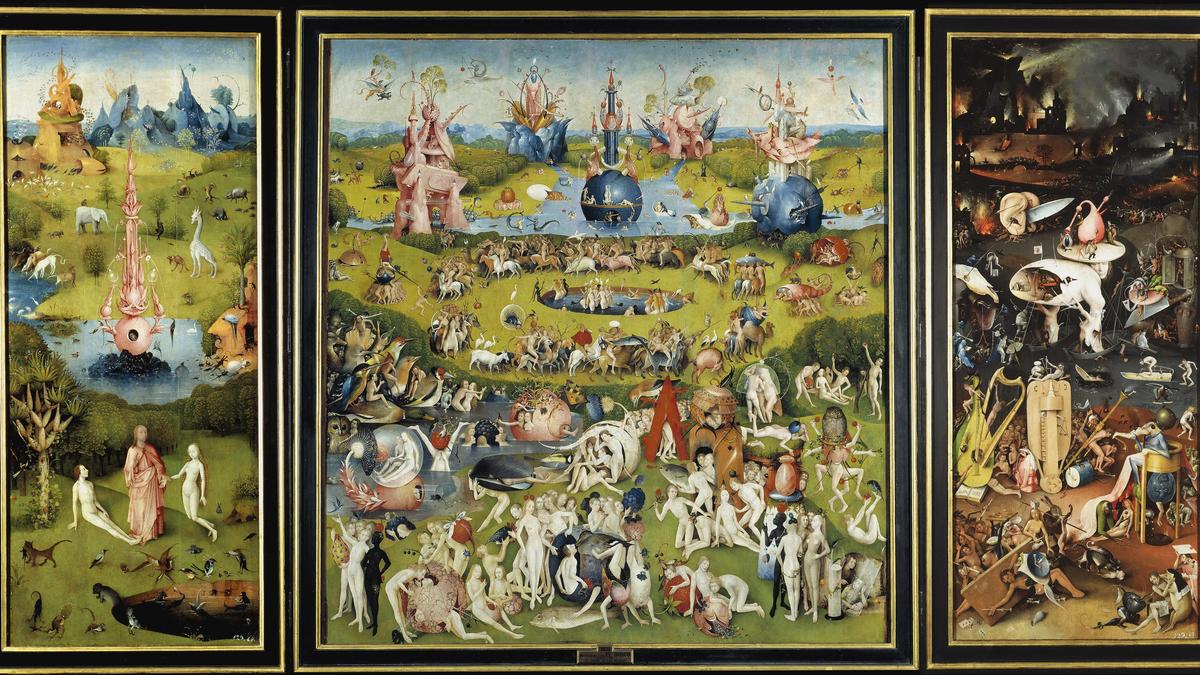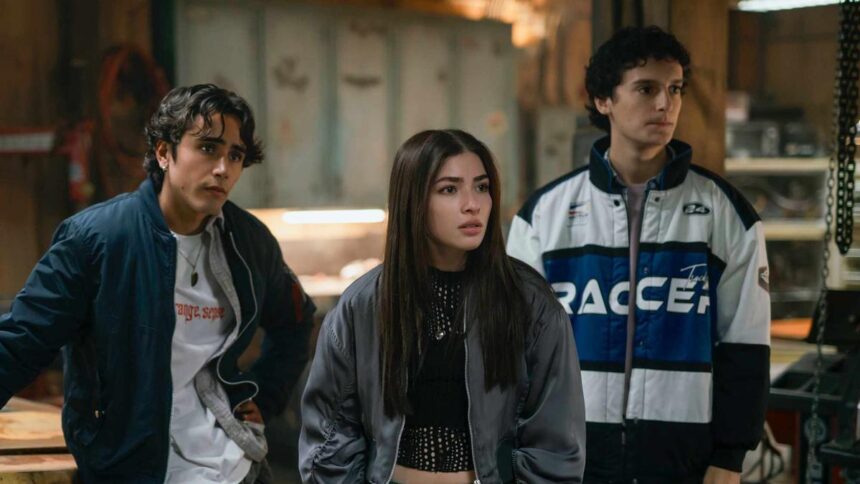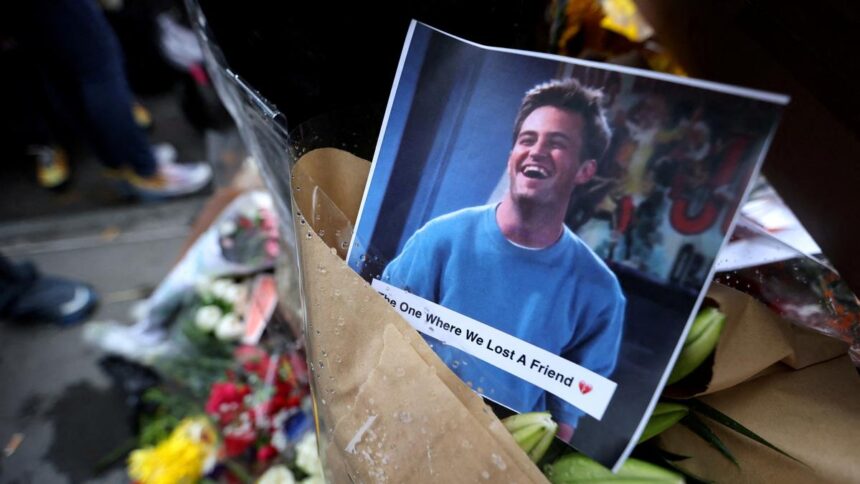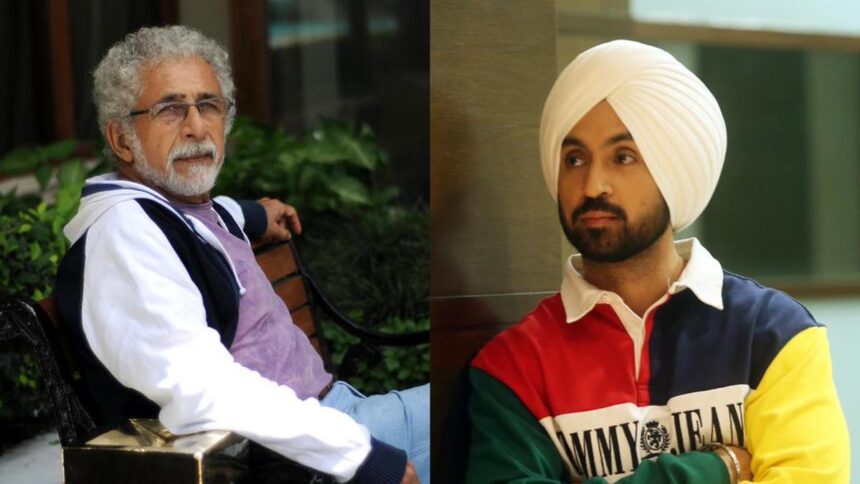
The Garden of Earthly Delights
| Photo Credit: Wikimedia Commons
In its just-over an hour and a half long runtime, ‘Before the Flood’ does not say much about how climate change entirely can be stopped, and perhaps, with good enough reason. Director Fisher Stevens, whose Academy-Award winning, ‘The Cove’ exposed the brutal slaughter of dolphins in Japan, teams up with Leonardo DiCaprio as they travel around the world to discover the causes and shocking effects that climate change has had across the globe. The film opens with the famous painting by Jheronimus Bosch, ‘The Garden of Earthly Delights’, a canvas that the UN Messenger of Peace remembers to be his earliest memory as a child, for it hung above him as a baby. The 15th-century Triptych is perhaps Bosch’s most ambitious work, which continues to loom over the actor’s head till date, serving as a powerful metaphor for the growing concern of climate change. Even until 2015, there were several politicians and spokespersons who denied that climate change was real, in spite of scientific proof.
DiCaprio’s journey to regions with adverse effects on the environment brings to immediate attention a primary cause that lies common everywhere: Climate change is fostered by man-made impact, but it is nature and wildlife that pay the ultimate price. Furthermore, the documentary urges us to observe what has become an alarmingly real situation, fuelled by the politics of greed. In his conversations with people in the various countries he visits, DiCaprio realises a greater truth that haunts him. He finds despair, for he slowly begins to realise the inevitability of catastrophe – a storm that was predicted to arrive centuries later is now only decades away from causing ultimate destruction.
The documentary, infusing interviews with powerful visuals, occasionally echoes the concerns of the protagonist. However, DiCaprio is most often an observer, an ant exploring the elephant’s body. The issue does not lie in one singular factor, but several factors. In Canada, acres of forest land has been cut for oil sands by large corporations, which is detrimental to the environment. Farmers lose crops due to untimely rainfall in India. In Indonesia, creation of palm oil plantations leads to loss of forest cover. There is corruption. There is pollution. There is ignorance. The protagonist slowly loses hope. To accept that the problem exists is key before even trying to solve it. In lieu of this, as the film progresses, it serves as a key call to take collective action, raising awareness to the rapidly worsening situation of the climate.
In a meeting with the Pope, DiCaprio is reminded that the Paris Climate Agreement of 2015 is just the start. Global leaders have agreed in unison the reality of the situation. It is here that his fears ever-so slowly begin to find the light of a hope, which lies in individual action that slowly will eventually turn into a group effort. Bosch’s painting echoes a multitude of meanings here. If the left wing of his painting is an ecosystem untouched before Adam and Eve, we are currently in the Central Panel. The world is riddled with chaos, sin and greed. Leonardo DiCaprio fears the advent of the third and final panel, a world struck by a flood, suffering the hellish punishments of all of humanity’s wrongdoing. However, there is time to change it, and every small step counts, for we still are, ‘Humankind Before the Flood.’
Published – August 19, 2025 02:23 pm IST























